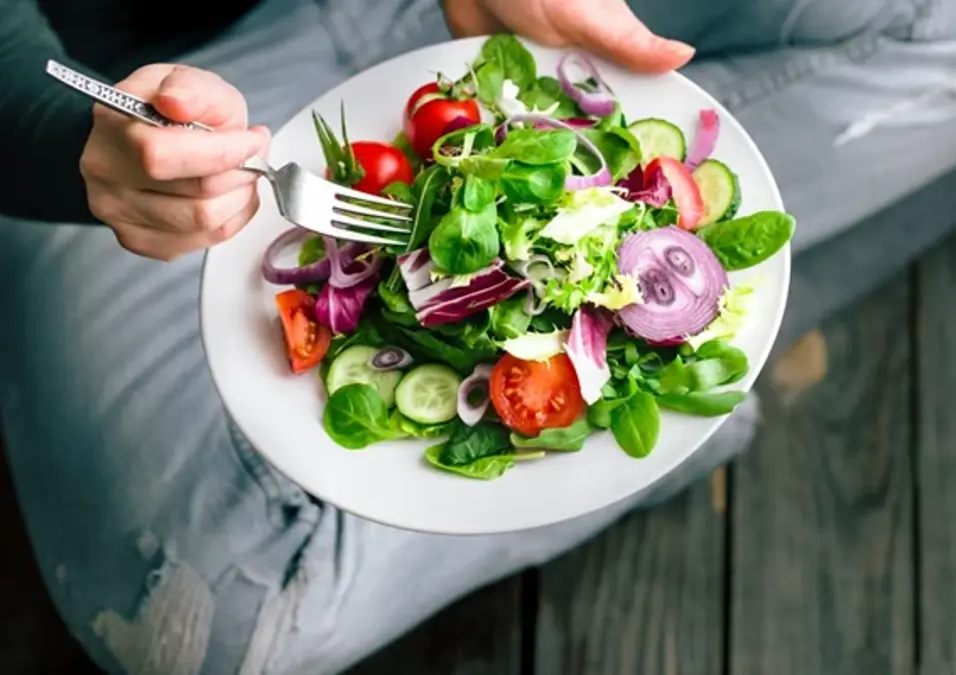5 foods, vitamins and minerals for a healthy, strong diet

SIGN UP FOR YOUR FREE DAY PASS TODAY!
There is no such thing as the perfect food: nothing, not even the most super-powered, exclusive berry or grain touted by the elitist of the elite in fitness circles, can give you everything you need.
Variety is key for attaining all the nutritional health and fitness benefits our bodies crave. Combining disparate foodstuffs from a long list of healthy choices and keeping them within healthy and relevant caloric and macro-nutritional ranges will keep you fighting fit far more than simply going for the same, tried and tested meal every day.
With this in mind, always remember to cast a wide net when looking for ways to fill out your diet. Yes, you need to hit the staples- get in the requisite macronutrients, get in the calories you need to achieve your goals- be it weight loss or building muscle.
With this in mind, we’ve put together five items to get you going, from foods to supplements. It is far from an exhaustive list, but the items that follow are worthy of note and will represent a great start to your nutrition journey.
1. Protein
This is obvious. We all need protein: it’s one of the three macronutrients and is vital for building muscle and allowing for improved athletic performance and heightened weight loss. However, there is protein and there is protein: there are certain sources that are better than others.
First off, let’s look at supplements. The best natural sources are the whey and casein proteins in milk, which have more branched-chain amino acids (BCAAs) than other sources. The key amino acid you want in your shake is leucine, as this is the most important amino for protein synthesis. So, make sure you have a good quality whey protein powder that contains everything you want and no more- avoid cheaper brands that bulk their powders with useless fillers, and make sure that leucine is the main amino acid they use.
With regards non-supplement food sources of protein, fish is always a good bet. It is full of complete protein accompanied by omega-3 fatty acids, which will aid heart health and mobility. Salmon, tuna steaks and sardines are top of the list in this regard.
2. Vitamin D
If you spend hours outside in the sunshine, you are likely getting enough vitamin D. However, this is often not the case in the modern world. We all live and work indoors, seeing less sunlight than our ancestors, and less than we have evolved into needing. It is always worth asking your healthcare provider to test your vitamin D levels, to see if they are adequate. For many of us, supplementation will be vital.
If your vitamin D levels are low, your testosterone and energy levels will also dip, and you run the risk of several diseases, such as rickets, for example. A simple supplement will fix this and keep you covered, no matter your lifestyle.
3. Leafy greens and cruciferous vegetables
Dark, leafy greens are a good source of vitamin A, vitamin C, and calcium, as well as several phytochemicals. Phytochemicals are natural chemicals made by plants that have a positive effect on the body’s health. They will also give your diet a great deal of added fiber, which will lead to greater satiation and improved digestion and cholesterol levels. Try varieties such as spinach, kale, Swiss chard or collard greens. Include them as salads alongside your main protein source, steam them, include them in soups and stews, or cook them down in a little olive oil.
Cruciferous vegetables are also an excellent source of fiber, vitamins, and phytochemicals including indoles, thiocyanates, and nitriles, which may prevent some types of cancer. Commonly found cruciferous vegetables include broccoli, Brussels sprouts, cabbage, cauliflower, collard greens, kale, kohlrabi, mustard greens, radishes, and turnips. They all work perfectly either steamed or stir-fried or added to soups and stews.
4. Nuts
Nuts are a good source of protein and a fantastic source of healthy, monounsaturated fats, which may be a factor in reducing the risk of heart disease. They are also incredibly tasty, making them pretty easy to include in any eating plan as either an ingredient or snack in their own right. They can help you cut down on unhealthy calories, whether you're working towards weight loss or building muscle.
Hazelnuts, walnuts, almonds, pecans, cashew and peanuts (technically a legume) are all worth regularly including in your diet. Try adding a handful to your morning porridge or yogurt, or else just keep a pack handy as a quick snack throughout the day. Nut butter such as peanut, almond, or cashew is a great addition to sandwiches and sweet dishes.
Nuts can also be a great accompaniment to cooked veggies or salads, or as a flavoring in curries.
5. Whole grains
Whole grains are a good carbohydrate source, are usually complex, meaning that insulin levels won’t suffer from you eating them and satiation will be improved, and are a source of both soluble and insoluble fiber. They have been shown to lower cholesterol and protect against common serious conditions like heart disease and diabetes.
Whether you like it or not, carbs are an essential ingredient to an effective workout. Consuming foods with low Glycemic Index like whole grains not only helps with controlling blood sugar but also gives you the boost you need for your next workout, be it cardio for weight loss or a strength workout for building muscle.
Whole grains also contain several B vitamins, minerals, and phytonutrients.
Porridge oats are perfect in the morning (alongside your nuts- see above.) Lose some of the starchy white carb sources like potatoes and processed wheat products (anything with flour in, like bread) with bulgur wheat, quinoa or brown rice.
GET YOUR FREE TRIAL TODAY














































































